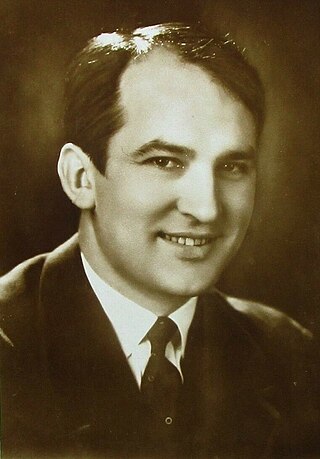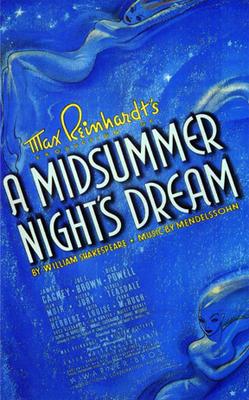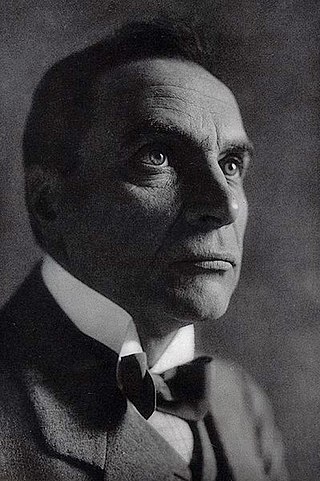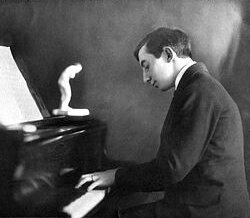Notes and references
Notes
- ↑ Eva Hyde(néeEva Heymann; 1910–1953), a Munich-born actress who was exiled in 1937, was the third wife of composer Werner R. Heymann, her first husband whom she divorced in 1940. She was a distant cousin of Werner Heymann. In 1952, she married artist Klaus Brill (1913–2007).
Related Research Articles

Paul Muni was an American stage and film actor from Chicago. He started his acting career in the Yiddish theater and during the 1930s, he was considered one of the most prestigious actors at the Warner Bros. studio and was given the rare privilege of choosing his own parts.

Max Reinhardt was an Austrian-born theatre and film director, intendant, and theatrical producer. With his radically innovative and avante garde stage productions, Reinhardt is regarded as one of the most prominent stage directors of the early 20th century.
Leopold Jessner was a noted producer and director of German Expressionist theater and cinema. His first film, Hintertreppe (1921), is considered a major turning point which paved the way for the later German Expressionist experiments of German filmmakers F.W. Murnau, Fritz Lang, and G.W. Pabst.

William Dieterle was a German-born actor and film director who emigrated to the United States in 1930 to leave a worsening political situation. He worked in Hollywood primarily as a director for much of his career, becoming a United States citizen in 1937. He moved back to Germany in the late 1950s.

Salka Viertel was an Austrian actress and Hollywood screenwriter. While under contract with Metro-Goldwyn-Mayer from 1933 to 1937, Viertel co-wrote the scripts for many movies, particularly those starring her close friend Greta Garbo, including Queen Christina (1933) and Anna Karenina (1935). She also played opposite Garbo in MGM's German-language version of Anna Christie in 1930.
Gottfried Reinhardt was an Austrian-born American film director and producer.

A Midsummer Night's Dream is a 1935 American film adaptation of the Shakespearean play of the same name. It is directed by Max Reinhardt and William Dieterle, produced by Warner Bros., and stars James Cagney, Mickey Rooney, Olivia de Havilland, Jean Muir, Joe E. Brown, Dick Powell, Ross Alexander, Anita Louise, Victor Jory and Ian Hunter. The screenplay, written by Charles Kenyon and Mary C. McCall Jr., is adapted from Reinhardt's Hollywood Bowl production of the play from the previous year.

Albert Bassermann was a German stage and screen actor. He was considered to be one of the greatest German-speaking actors of his generation and received the famous Iffland-Ring. He was married to Elsa Schiff with whom he frequently performed.

Harald Paulsen was a German stage and film actor and director. He appeared in 125 films between 1920 and 1954.

German educated Greek stage director Fotos Politis, 1890–1934, was one of the most prominent figures in the revival of the ancient Greek tragedies in the 20th century. A literary and theater reviewer and playwright, who was responsible for the creation of what came to be called "the theatrical tradition of the National Theater of Greece", he developed original teaching methods for aspiring young actors in Athenian drama schools while the rehearsals for the plays that he staged were known for their long duration and exhaustive intensity. Politis felt an obligation to educate not only the actors, corrupted by the French "Théâtre de boulevard" of the time, but also the general public by bringing it in contact with the masterpieces of ancient Greek tragedy, Shakespeare, classical European theater and avant-garde theater.

Max Hansen , also known as 'The Little Caruso', was a Danish singer, cabaret artist, actor, and comedian.

Werner Richard Heymann, also known as Werner R. Heymann, was a German-Jewish composer active in Germany and in Hollywood.
The Ernst Busch Academy of Dramatic Arts, based in the Niederschöneweide district of Berlin, Germany, was founded in 1951 as the National Theatre School in Berlin with the status of college. In 1981, it was granted university status, and a year later it was renamed after the singer and East German actor Ernst Busch.

Hintertreppe is a 1921 silent film. This was the first movie by German director Leopold Jessner, in cooperation with Paul Leni. Carl Mayer specifically wrote this for Leopold Jessner, who would go on to direct Erdgeist (1923). Hintertreppe was a precursor of the 1920s German kammerspielfilm style.

Eduard Clemens Franz Anna Freiherr von Wangenheim, known as Eduard von Winterstein, was an Austrian-German film actor who appeared in over one hundred fifty German films during the silent and sound eras. He was also a noted theater actor.

Oskar Leopold Karlweis was an Austrian-American stage and film actor, active internationally.
Minna Stern, known professionally as Hermine Sterler, was a German-American actress whose career spanned both the silent and the talkie film eras on two continents.

Lionel Royce was an Austrian-American actor of stage and screen, also known during his European career as Leo Reuss. He began his career in theater in Vienna, Austria, in 1919, before moving to Berlin in 1925. Being Jewish, his work began to be restricted in the 1930s in Nazi Germany. Fleeing the Nazis he returned to Austria in 1936, where to hide his heritage, he created the persona of Kaspar Brandhofer, a Tyrolian peasant, and became a sensation as a natural actor on the stage in Vienna. When he admitted his ruse, he became blacklisted in Austria, after which he emigrated to the United States in 1937. He had an active film career in the United States, appearing in almost 40 films between 1938 and 1946. While on tour with the USO, he died in Manila in 1946.
Hans Josef Schumm(néJohann Josef Eugen Schumm; 2 April 1896 Stuttgart – 2 February 1990 Los Angeles) was a German-born-turned-American actor, notably, a prolific and critically acclaimed Hollywood screen character actor who appeared in some 95 films – including a co-starring villainous role in a 12-episode serial. He also appeared in 15 TV productions and several stage productions, including one on Broadway. Except for about ten cinema productions, Schumm's body of work in cinema and television was filmed in the United States. On stage and in film, he is credited as Hans Josef Schumm or simply Hans Schumm; but in seven films, he is credited under the pseudonym André Pola — three in 1948, one in 1949, one in 1954, and one 1956. In his private life, he was known as Joseph Schumm and Johann J.E. Schumm.

Fritz Jessner was a German-American actor and theater director.
References
- 1 2 Giovacchini, Saverio (2001). Hollywood Modernism: Film and Politics in the Age of the New Deal. Temple University Press. ISBN 978-1-56639-863-3. OCLC 924379553. ISBN 1566398622, 9781566398626, 1566398630 "The Continental Players," p. 110
"Contemporary Theater," p. 110
"Modern Theater," p. 110
"Hollywood Theater Alliance," p. 110 - ↑ "Refugees to Act Here – Stage Stars Forced to Leave Nazi Areas Aided by Film Men," Los Angeles Times , May 1, 1939, Part 2, p. 3 (accessible via Newspapers.com at www
.newspapers .com /image /160145814 ) - ↑ "Kalifornien: Leopold Jessner" (from the Marta Mierendorff papers at USC), John M. Spalek (born 1928) & Joseph P. Strelka (de) (eds.), Deutsche Exilliteratur Since 1933, Vol. 1, No. 1, State University of New York Albany (1976), pps. 738–739; OCLC 489704553
- ↑ Leopold Jessner - Intendant der Republik: Der Weg eines deutsch-jüdischen Regisseurs aus Ostpreußen by Matthias Heilmann, Max Niemeyer Verlag (de) (2005; 2011); OCLC 979970340